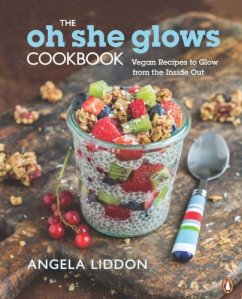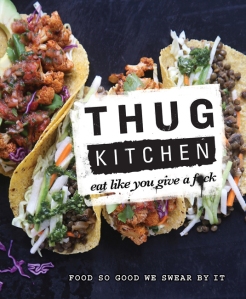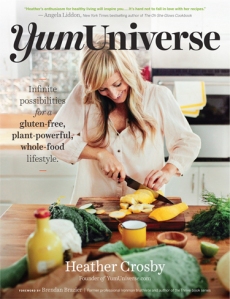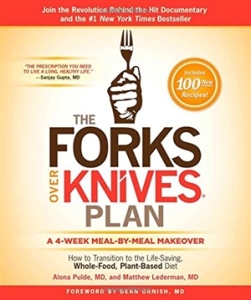 I am obsessed with cookbooks. When I first started to learn to cook for real (in my early twenties, just after I turned vegetarian), I would entertain myself for whole afternoons by going to the cooking section of a bookstore, sitting down on the floor (this was in the days before bookstores provided comfy reading chairs), and pulling a cookbook off the shelf to read it cover to cover. Now that I have a regular income, I periodically break my budget (or fill my Christmas wish list) with a stack of cookbooks that I can pile next to me on the coffee table and read one after the other like novels.
I am obsessed with cookbooks. When I first started to learn to cook for real (in my early twenties, just after I turned vegetarian), I would entertain myself for whole afternoons by going to the cooking section of a bookstore, sitting down on the floor (this was in the days before bookstores provided comfy reading chairs), and pulling a cookbook off the shelf to read it cover to cover. Now that I have a regular income, I periodically break my budget (or fill my Christmas wish list) with a stack of cookbooks that I can pile next to me on the coffee table and read one after the other like novels.
Although I’ve been more or less vegetarian for the past 25 years (with exceptions made for fish and seafood because they made my life easier and, I believed, made me healthier), my diet has taken a sharp turn to the left recently. I stumbled upon a string of documentaries, the most notable of them being Forks Over Knives and Vegucated, that convinced me of something I already half believed: I should try to eliminate all animal products from my diet.
So I’m starting 2015 with this tentative goal. I’m not yet ready to demand that restaurants make my sag aloo without any ghee, or to carry a vegan bento to dinner parties in case my friends put eggs in their handmade pasta. However, I’m having fun going through old cookbooks and buying (or demanding) new ones, and learning how to make cashew cream and multigrain chia power bread. And the smoothies! So many smoothies. It’s a good time.
On my path to a whole-foods, plant-based diet, the food books below have been both helpful and enjoyable. If you love a good cookbook, whether or not you want more plants and fewer animals in your diet, these books will give you hours of reading entertainment, an excuse to spend leisurely afternoons in the health-food store buying buckwheat groats and sorghum, and freezers full of healthy, tasty meals. Which, when taken all together, is pretty much my definition of bliss.
1. The Oh She Glows Cookbook (photo above): A friend introduced me to Angela Liddon’s blog at around the same time this vegan, allergy-friendly book was released. It’s where I learned to make overnight oatmeal, and it inspired me to buy a vegetable spiralizer. It’s also super pretty, especially the Canadian edition with the chia pudding fruit parfait on the cover!
 2. Thug Kitchen: Caution: profanity. Lots and lots of profanity. My husband sent me the “trailer” for this book/blog because a) he couldn’t stop laughing, and b) he wanted to gauge, by my reaction, whether he should buy me the cookbook for Christmas. And, because I said, “Holy &%$*,” he did. It is great, and the blog is too. Best recipe so far is the citrus tofu marinade, but I’m looking forward to trying the “Warm the F%*# Up Minestrone” next.
2. Thug Kitchen: Caution: profanity. Lots and lots of profanity. My husband sent me the “trailer” for this book/blog because a) he couldn’t stop laughing, and b) he wanted to gauge, by my reaction, whether he should buy me the cookbook for Christmas. And, because I said, “Holy &%$*,” he did. It is great, and the blog is too. Best recipe so far is the citrus tofu marinade, but I’m looking forward to trying the “Warm the F%*# Up Minestrone” next.
 3. YumUniverse: This book is a wonderful compendium for someone embarking on what Heather Crosby calls a “plant-powerful, whole-food lifestyle.” As a bonus, all recipes are gluten free and most are made without soy. The first chapter compiles research on why we should eat lots of plants and less of other things. The second gives lots of good advice on filling your pantry and your kitchen tool cabinet. The best part, though, is the pages dedicated to making staples like dairy-free milks (I have been avoiding buying these lately because they’re so full of preservatives), soaking and sprouting, storing vegetables, etc.
3. YumUniverse: This book is a wonderful compendium for someone embarking on what Heather Crosby calls a “plant-powerful, whole-food lifestyle.” As a bonus, all recipes are gluten free and most are made without soy. The first chapter compiles research on why we should eat lots of plants and less of other things. The second gives lots of good advice on filling your pantry and your kitchen tool cabinet. The best part, though, is the pages dedicated to making staples like dairy-free milks (I have been avoiding buying these lately because they’re so full of preservatives), soaking and sprouting, storing vegetables, etc.
 4. The Forks Over Knives Plan: The companion to the documentary mentioned above, this book details the research on the advantages of low-fat, whole-foods, plant-based diets entirely from a health perspective. It then offers recipes and techniques (like how to saute without oil – it works!) If you’re interested in the research behind plant-based eating, I would also recommend two books upon which this one is based: The China Study and Whole, both by T. Colin Campbell. The China Study was a foundational text for the Forks Over Knives documentary, and gives excellent arguments for giving up all animal protein, as well as reducing added fat and salt, in order to ward off or even reverse chronic disease.
4. The Forks Over Knives Plan: The companion to the documentary mentioned above, this book details the research on the advantages of low-fat, whole-foods, plant-based diets entirely from a health perspective. It then offers recipes and techniques (like how to saute without oil – it works!) If you’re interested in the research behind plant-based eating, I would also recommend two books upon which this one is based: The China Study and Whole, both by T. Colin Campbell. The China Study was a foundational text for the Forks Over Knives documentary, and gives excellent arguments for giving up all animal protein, as well as reducing added fat and salt, in order to ward off or even reverse chronic disease.
 5. Salad Samurai: This was another Christmas gift, and I love it even though I haven’t yet made a thing out of it. Just reading about Coconut Samosa Potato Salad and Tempeh Rubenesque Salad has made my life better. Terry Hope Romero is one of the geniuses behind the classic vegan cookbook Veganomicon (with Isa Chandra Moscowitz, a vegan punk icon). This book is not light on the fat – its subtitle includes the phrases “ultra-hearty” and “you don’t have to be a vegan to love” – but it is heavy on the veggies, legumes and grains, and is a gorgeous little handbook to making every salad a meal.
5. Salad Samurai: This was another Christmas gift, and I love it even though I haven’t yet made a thing out of it. Just reading about Coconut Samosa Potato Salad and Tempeh Rubenesque Salad has made my life better. Terry Hope Romero is one of the geniuses behind the classic vegan cookbook Veganomicon (with Isa Chandra Moscowitz, a vegan punk icon). This book is not light on the fat – its subtitle includes the phrases “ultra-hearty” and “you don’t have to be a vegan to love” – but it is heavy on the veggies, legumes and grains, and is a gorgeous little handbook to making every salad a meal.
What food books have improved your year? Do you have a favourite vegan or vegetarian collection? Have you made any changes to your diet recently that you feel were for the better? Let me know your thoughts.
*Note: post title from Michael Pollan’s Food Rules, another great food book not on this list.